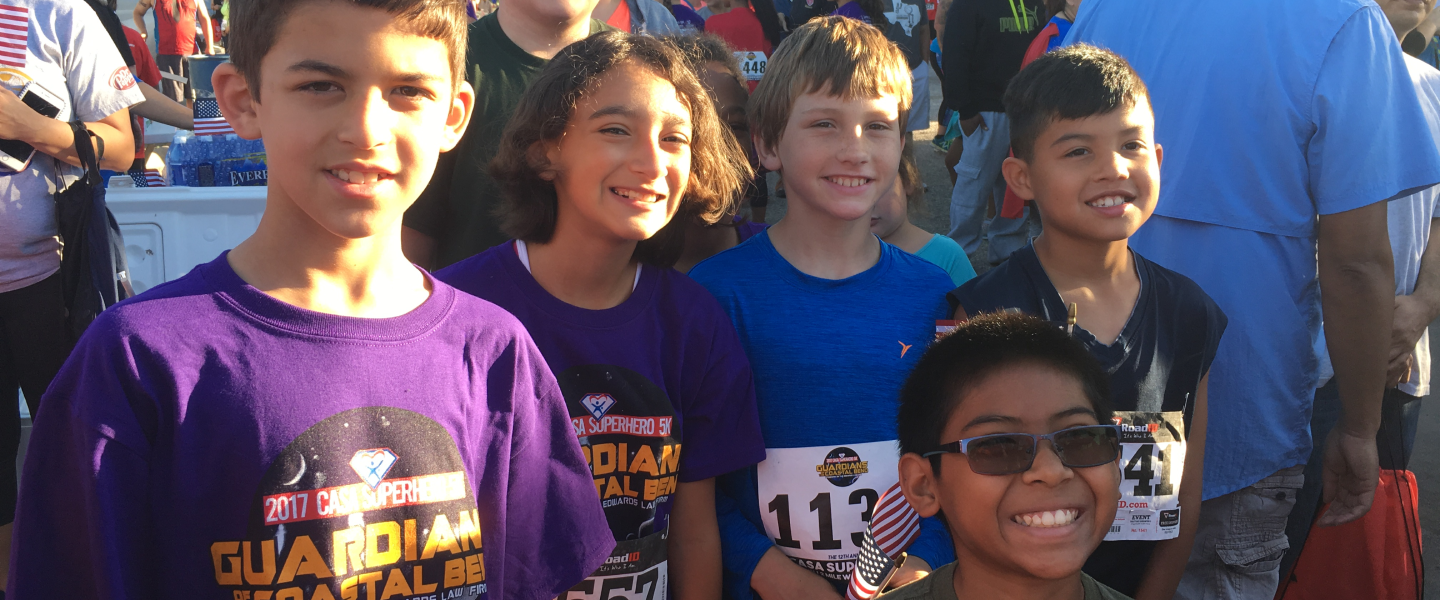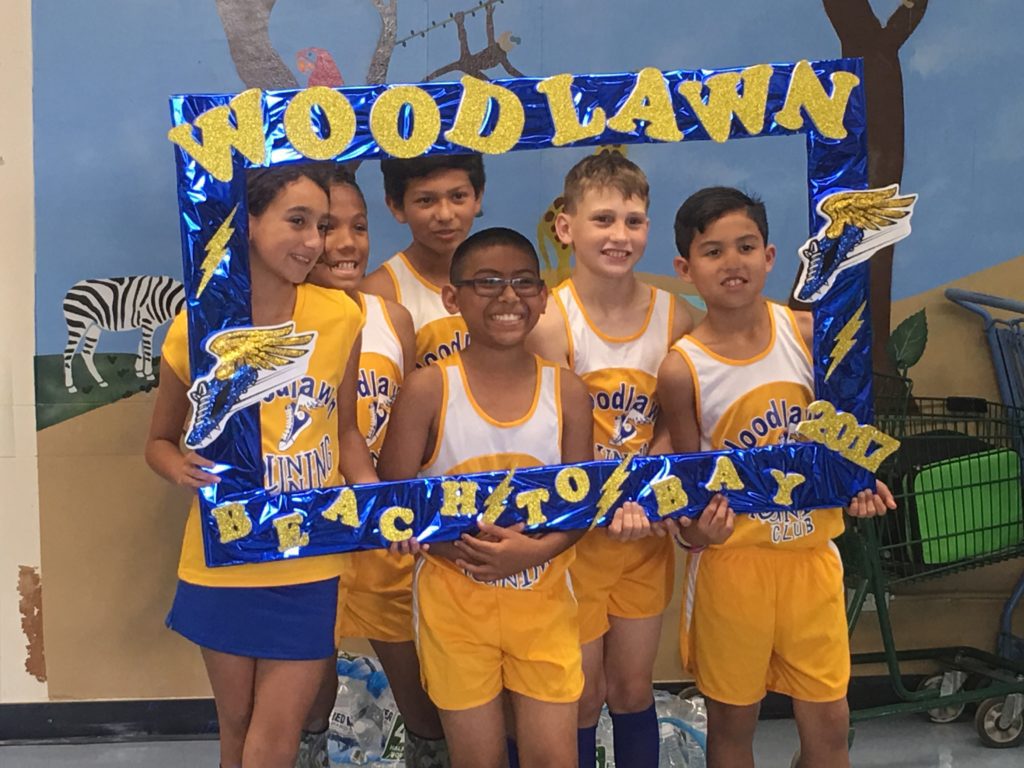
Dr. George Woods Emphasizes a Life of Wellness
By MK Editor, May 23, 2021
Dr. George Woods is the Health and Physical Education Specialist for Corpus Christi Independent School District (CCISD), but he wants to change that. Not his position—what he wants to change is the department title itself, to the Department of Health and Wellness. Student wellness is important. “When you look at the history of Physical Education and where it started,” he says, “a lot of it goes back to World War I. Back then, we needed people to be ready for war, to be in better shape, so calisthenics was a big thing. They took a really rigid, military-style approach.”
But the world has changed in the past century, and Dr. Woods says that in higher education, “the term ‘physical activity has all but vanished. Now it’s kinesiology, and physical education is just one component of that.” Here in Texas, he says, PE teachers cover far more than just physical education. “We talk about health, social-emotional learning, meditation, even snakes! We should know what snakes are here—venomous snakes! It keeps kids safe and healthy.”
Dr. Woods knows a lot about keeping kids healthy. Before shifting into his current position in Fall 2020, he was a PE teacher in CCISD for nearly a decade. He was also a Marathon Kids running club coach for five years. “When you say ‘physical education,’” he says, “it focuses on fitness, but as a PE teacher, that’s not my charge. My charge is not to make your child fit. It’s to give them the tools to make appropriate decisions to become a lifelong mover.”
Helping Students Achieve a Lifetime of Movement
Dr. Woods emphasizes that’s not just a Corpus Christi ISD goal, but a national standard: to be a lifelong mover. “We don’t want to make athletes. We love sports, but that’s not what PE is about. It’s about moving, it’s about health, it’s about wellness. These skills will extend into adulthood. It’s about a whole life of movement.”
Woods speaks passionately about PE best practices and student health and wellness. His philosophies align closely with the Marathon Kids mission to get kids moving to set a path towards a lifetime of good health. In fact, he credits his years as a Marathon Kids running club coach with honing his approach to teaching PE. “The coaching packet that the organization provided, and just being able to interact with the people at Marathon Kids, gave me a lot of self-confidence in what I was doing as a PE teacher. It vetted my thoughts in what I was learning to become more of an efficient and effective run club coach.”
Woods taught PE at Woodlawn Elementary School, a Title I school in CCISD. His run club students were in third through fifth grades and met once a week. However, the whole school used Marathon Kids programming. Therefore, any student from any grade level who wanted to meet up with the run club was welcomed.

“We had a modified workout that was developmentally appropriate for the younger students,” Woods says. “I would set up stations, tunnels, and just make it lots of fun and very creative, with lots of color, so the kids would want to go through these obstacle courses. They would have fun, go swing.”
Marathon Kids counts 20 minutes of moderate to vigorous physical activity as equivalent to one mile of running or walking. Dr. Woods rarely focused solely on running with his run club kids. “At that younger age,” he says, “I just want them to engage. If they’re moving, if they’re engaging, they’re building their muscle tone while also learning to socially adapt as well.”
Student Motivation and Participation Build Over Time
For the first year of his Marathon Kids run club, the club was small—just four participants. The following year, it grew to about 30 students, and then to about 60 in the third year. After that, Woods says, “it grew to over 100. Then it was just as many kids as I could manage, when I opened it up to kindergarten, first and second grades.”
In those years, Nike provided Marathon Kids run club participants with incentives such as tee shirts and shoelaces to celebrate when kids hit major milestones, such as completing a full marathon. (The Marathon Kids program encourages kids to cover four cumulative marathons. That is 104.8 miles, over the course of a school year or run club season.)
“The students wanted to earn their perks,” Woods remembers. “The shoelaces, the shirt, they wanted to earn it! It was a sign of pride for them to walk around school with that. They knew that other students knew, ‘I was in Coach Woods’s running club.’”
He also kept a mileage tracker displayed prominently for the whole school to see. Then, the students could take pride in their mileage and achievements. One of the best things about his run club, he says, was the community interaction and engagement that it inspired. “It wasn’t just the child, it was the whole community.”
The run club met up to run laps every other Saturday morning. He says he was always glad to see not just the student runners but their whole families participate. “It was parent volunteer coaches, parents and guardians going out and participating with their children in the run club activities,” he recalls. That was a benefit to him as a teacher, as well. “You can educate a kid better when you have a stronger relationship with the parents and guardians.”
Coaching a Run Club During a Pandemic
Everything changed when Covid-19 forced CCISD schools to close in March 2020. “We never went back to school after Spring Break 2020,” Woods says. “Then, in Fall 2020, we did the first four weeks online only, and then we moved to a phased-in progression for in-person learning.”
Woods lost the majority of his Marathon Kids participants during remote learning. However, some students still kept up with their miles from home. “I would send out assignments and would ask my kids, ‘For running club, show me a video of where you’re running, a track or activity log, just anything’—and I would have about 15 to 20 students sending things in.”
Using Marathon Kids Connect to Better Assess Student Physical Activity
Now, as the Health and Physical Education Specialist for CCISD, Woods oversees PE programs in pre-K through 12th grades throughout the district. One of his “big push ideas” for PE relates to transforming how the district approaches student assessment and evaluation. His goal? “I want it to be not just citizenship or behavior grades, but instead designed so that, when we talk to parents, we can be very specific about their kids’ skills and future goals.”
He sees Marathon Kids Connect as an important tool in gathering real data for student assessment. A cloud-based physical-activity tracking and reporting platform, Marathon Kids Connect is available to teachers, coaches and other individuals who want to start a run club or use Marathon Kids programming.
“We want to see where kids are being active,” Dr. Woods says, “and Marathon Kids Connect really allows that. We’re using it district-wide at all elementary middle and high schools. The teachers, the students and their parents can all just put in the students’ physical activity for the day. At that point, we can start creating goals and using it for our Wellness Plan assessment, to see how physically active our students really are.”
A Beneficial Partnership Between Marathon Kids and Corpus Christi ISD
Dr. Woods calls his district’s connection with Marathon Kids “a wonderful partnership. Richard Torres was the district specialist before me, and we have always valued our partnership with Marathon Kids. The program is student focused, seeking what’s best for the student, and that’s all we ever want for our students—to be active in an enjoyable way. Marathon Kids helps us carry that out.”
Corpus Christi ISD schools have embraced Marathon Kids programming. In fact, beginning in the 2021–2022 school year, CCISD will be a District Tech Integration, meaning all CCISD schools can begin building a district-wide culture of health by implementing Marathon Kids programming and Marathon Kids Connect.
Deborah Dudney, the Physical Education teacher at Barnes Elementary School in CCISD, agrees with Dr. Woods about the benefits of her district’s partnership with Marathon Kids. She has been using Marathon Kids Connect with her run club since Fall 2020. “Due to Covid, we had to get creative in PE on how to count laps without handing the kids popsicle sticks,” she says. “There were so many restrictions on the use of equipment that it was difficult to have an accurate take on how they were doing with their mileage, but the Marathon Kids QR codes worked out perfectly!” (Marathon Kids Connect allows students to self-scan their own unique codes after each lap, and works well for safe-distance PE and running activities.)
Dudney says every Monday is Mile Monday in PE class at Barnes, and the students look forward to it every week. “I wanted my students to have something in their hands for each lap, not just so we could keep an accurate count, but also so they could be accountable to themselves for what they were accomplishing.” As of mid-April 2021, she reports, her run club has 270 active runners who have run over 1,800 miles together.
Marathon Kids is always innovating their platform and adding functionalities to better serve teachers, coaches, districts and, most of all, students. “I think Marathon Kids Connect has been a great tool for getting the kids moving and getting prepared for the state mandated FitnessGram,” Dudney says. “I love the Connect app, and I am really looking forward to the ability to download a timed report so the kids can know how long it’s taking them to complete a mile.”
Dudney is just one PE teacher in the district who is supported by Dr. Woods. Woods is an adjunct professor at Texas A&M–Corpus Christi, teaching evening classes in the Department of Kinesiology related to PE methods for elementary and secondary students. His years of teaching PE and coaching a Marathon Kids run club inform his college course content, and all of these experiences together help him support the PE teachers in his district.
“We’re trying to break away from the rigid ‘sport box’ and think about inclusiveness,” he says. “We need to think about change, challenge and choice for our students for differentiation. We want kids up and engaged in what they’re learning, and it has to be equitable.”
The Marathon Kids program has always stood for equity and access, and it’s always been for kids of all abilities. These qualities make it a natural partner for a diverse, growing and innovative district like Corpus Christi ISD.